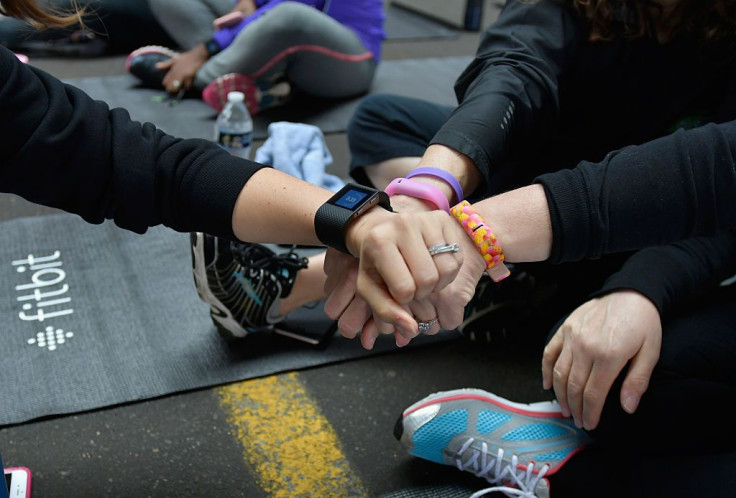Fitbit's New Sleep Schedule Feature Will Help Users Consistently Get A Good Night's Sleep

Companies have created apps, activity trackers, and bedtime calculators to help people figure out the best time to go to sleep. But to really get it down to a science, Fitbit has commissioned a three-person team of experts to design a personalized routine its users can follow to sleep soundly and regularly every night.
According to a press release, the fitness company’s new sleep schedule feature will work in tandem with its tracker’s other functionalities in order to enhance a user’s sleep quality. It curates sleep goals based on the target amount of shut-eye individuals should get each night, and other relevant data. It also sets target times to go to bed and wake up each day, and sends reminders to help keep people on track. And for consistency’s sake, there’s a history chart that tracks sleep over time.
“If you’re constantly changing your sleep routine, it can have the same effect as giving yourself jetlag because you are continually changing your circadian rhythm, also known as your internal clock, which can negatively impact your health and wellness,” said panel member Dr. Michael Grandner, the director of the sleep and health research program at University of Arizona. “To improve your physical performance, mental health, and cognitive functions, you should aim to get a sufficient amount of sleep each night and be consistent with the times you go to sleep and wake up each day.”
Since Fitbit specializes in tracking a person’s fitness, it’s no surprise the company has said the new sleep feature will also improve sweat sessions. When people don’t give their body enough time to recover and rest, their exercise routines suffer — and users who get on a healthier sleep schedule may eventually knock off a unit or two on their body mass index (BMI). Fitbit aggregated data collected from over 10 million users in 2015 and found those getting seven to nine hours of sleep a night tended to have a lower BMI than those snoozing for four hours or less.
Self questioned how effective the function’s overall strategy is given that the jury is still out on the effectiveness of tracking devices. Some researchers remain unconvinced sleep trackers even work, let alone provide accurate data. The company acknowledges that their forward-looking statements surrounding the sleep scheduler are predictions and may be proved inaccurate once users are testing the feature out.
In the end, though, the company hopes to help users get on a consistently good sleep schedule. Foolproof or not, everyone can agree that sleep is a pillar of health. Sleep deprivation in particular is increasingly linked to disease and even food cravings. If you’re already sleeping poorly, and most Americans are , then what do Fitbit wearers really have to lose?



























